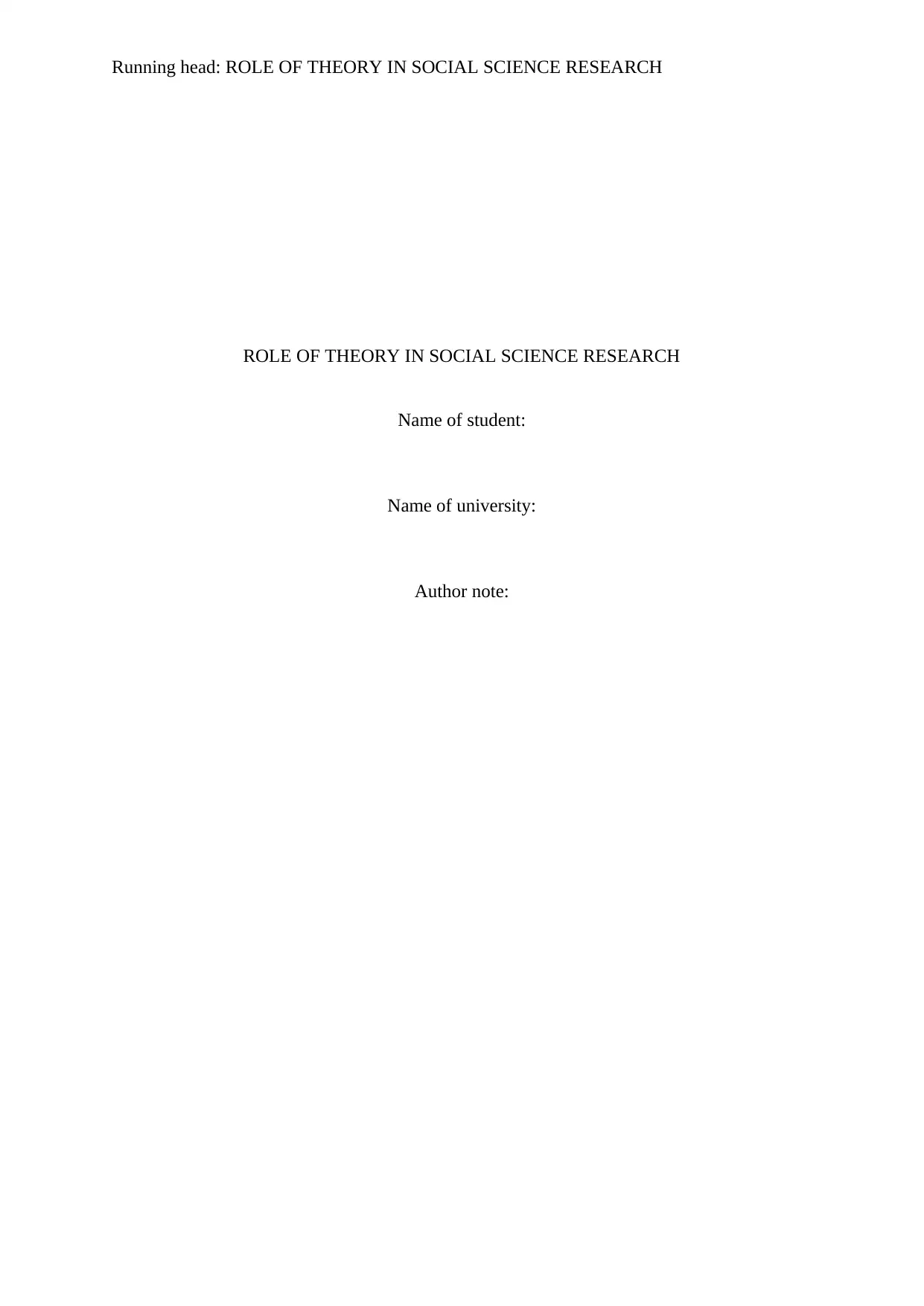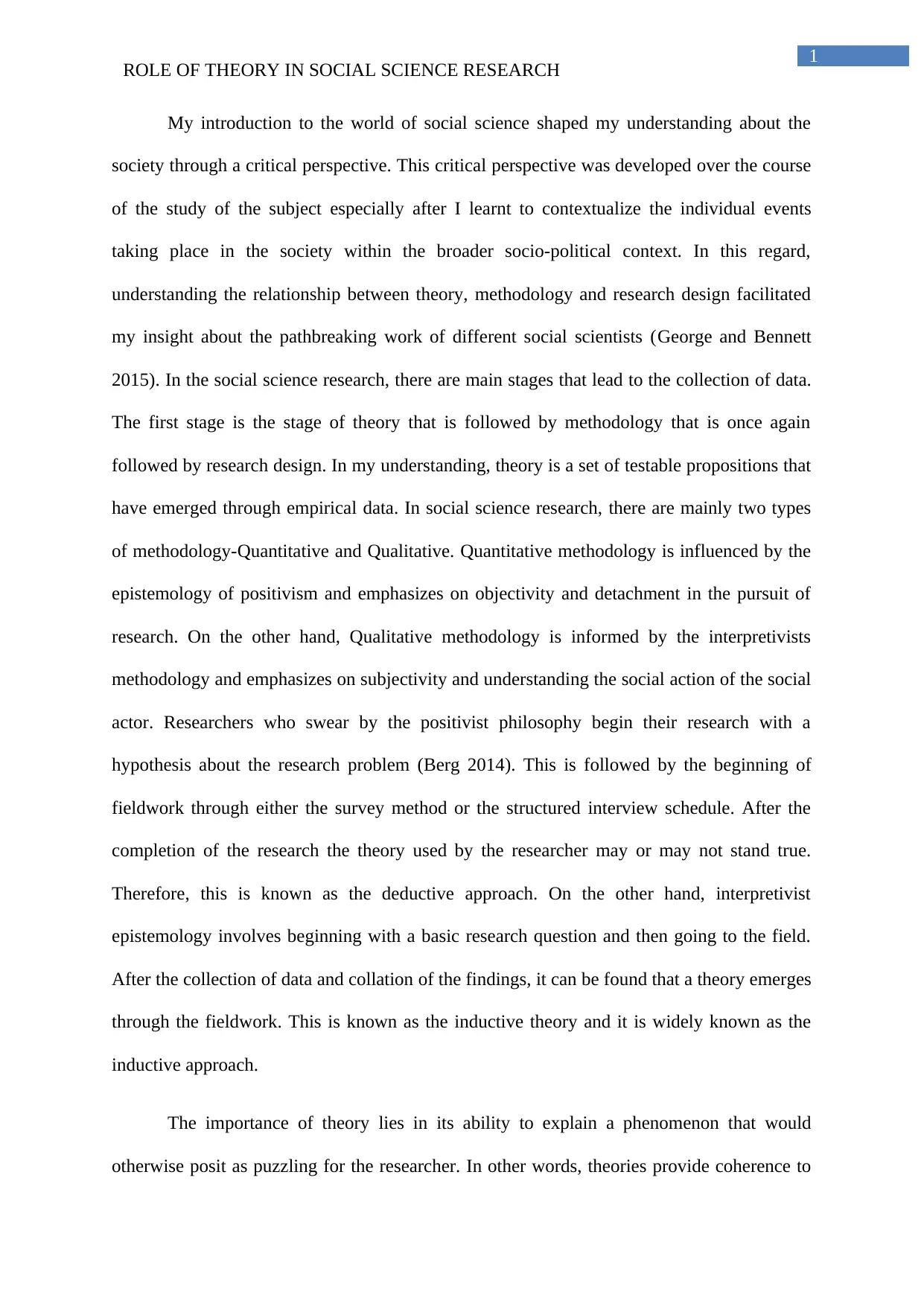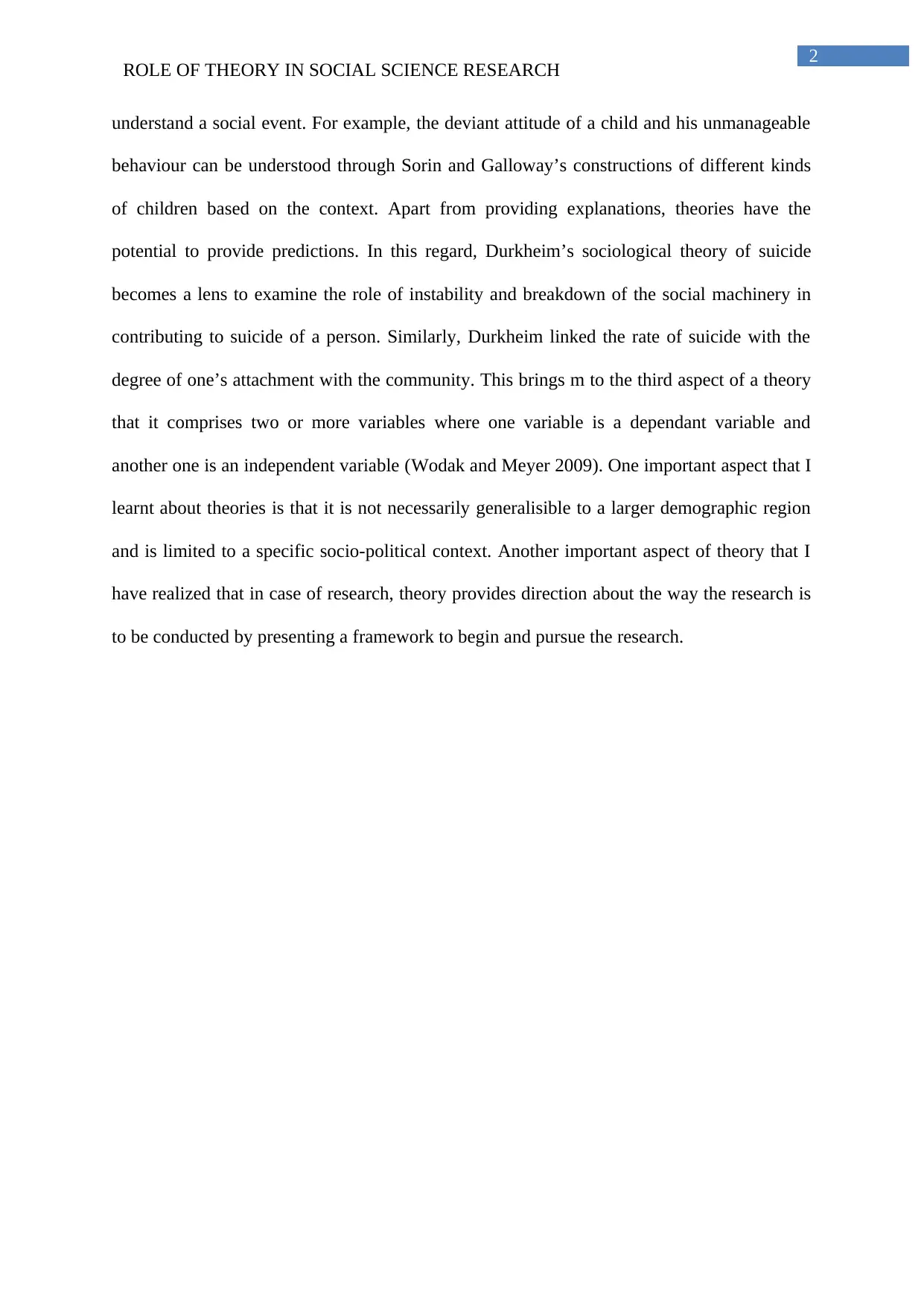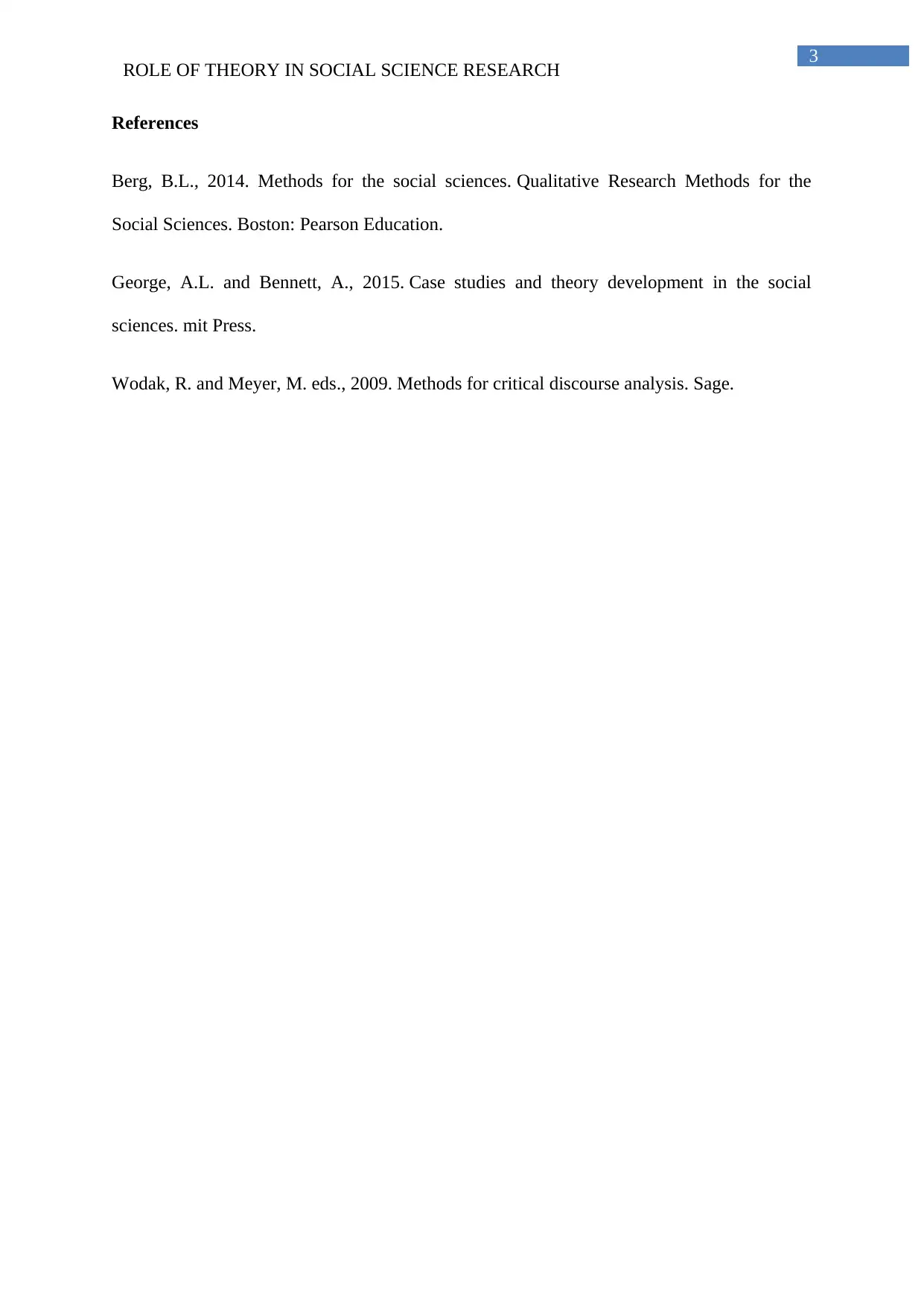An Examination of the Role of Theory in Social Science Research
VerifiedAdded on 2023/06/13
|4
|699
|427
Essay
AI Summary
This essay explores the critical role of theory in social science research, emphasizing its connection to methodology and research design. It delves into the distinction between quantitative and qualitative methodologies, shaped by positivist and interpretivist epistemologies, respectively. The essay elucidates the deductive and inductive approaches to theory development, highlighting theory's ability to explain phenomena, provide predictions, and identify variables. It also notes the importance of considering the socio-political context and the role of theory in guiding research. The provided solution gives a detailed account of how understanding the relationship between theory, methodology, and research design has facilitated insights about the work of different social scientists. Desklib offers a wealth of resources, including solved assignments and past papers, to aid students in their academic pursuits.
1 out of 4











![[object Object]](/_next/static/media/star-bottom.7253800d.svg)